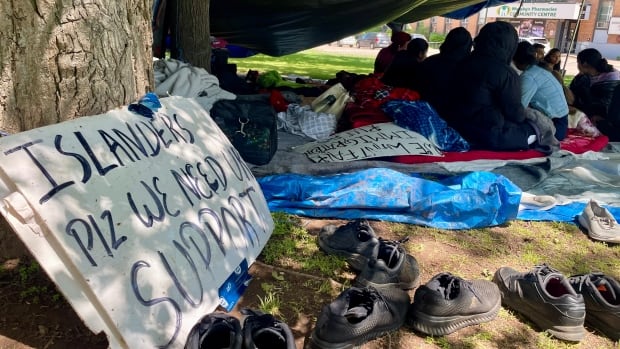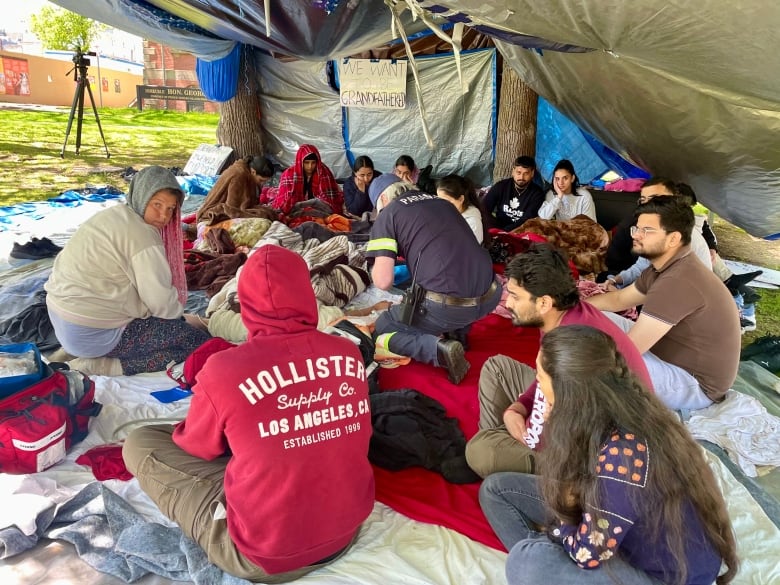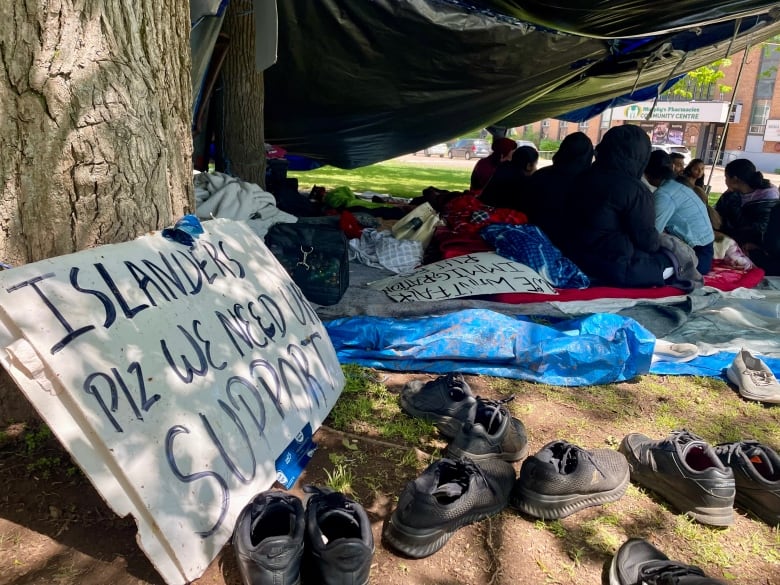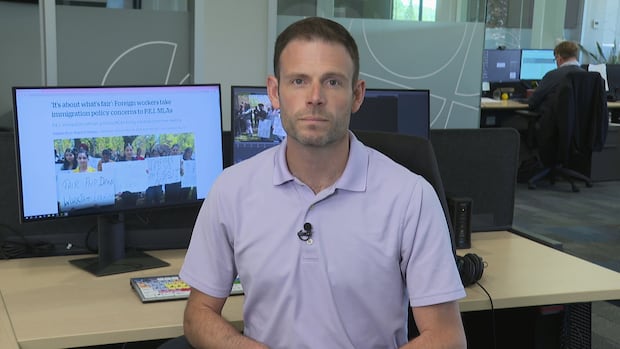
Foreign workers on P.E.I. are on their sixth day of a hunger strike and second day of not drinking liquids to protest changes to the provincial government’s immigration policy — and some of them have needed medical attention.
“I’m feeling dizzy sometimes. I fainted,” said Jaspreet Singh Sivia, one of the people who has been speaking on behalf of the protesters.
“I don’t know how I’m standing in front of you here. But we will have to hold,” he said in front of an encampment that protesters set up outside of the Coles Building on the grounds of the P.E.I. Legislature in Charlottetown.
“I’m worried about my health and the health of others, and we don’t want to risk our health…. But we don’t have any other choice.”

The group began protesting in the city a few weeks ago. It’s asking the province to exclude workers who are already on the Island from the impact of the policy changes.
The provincial government announced in February that it would cut back on the number of workers it nominates for permanent residency this year, from about 2,100 to about 1,600 — with a big drop in the number of hospitality workers in particular.
More than 800 were nominated last year, and the plan is to nominate just 200 this year as the province instead focuses on in-demand sectors like health care and construction.
For the past few weeks, protesters have been voicing their concerns about how the changes to P.E.I.’s provincial nominee program could leave many without a path to permanent residency. CBC reporter Steve Bruce breaks down who is protesting and how the province’s immigration policy has changed.
Many of the protesters have said their work visas are running out and they fear they will need to leave the country.
Sivia said his work permit expires in August.
Outside the Coles Building on Wednesday, paramedics with Island EMS were seen caring for some of the protesters.

Sivia said one man taking part in the hunger strike began feeling dizzy and had pain in his stomach. He says another woman “fell suddenly.” After receiving care from paramedics, they’re feeling better, he said.
Sivia admits the measures being taken by protesters are extreme, but “what is more critical is what we’re fighting for.”
‘Manifestly unfair and callous’
In a letter to P.E.I. Premier Dennis King, Charlottetown MP Sean Casey expressed his support for the people seeking permanent residency.
“The workers rightly feel that they have had the rug pulled out from under them with the lack of adequate notice of a policy change that has such a dramatic impact on them,” Casey said in the letter.
He said the provincial government has a right to make the policy decisions it feels are best, but that it should give the affected parties adequate time to prepare. Casey said the government not giving workers enough time to find work in the preferred sectors is “manifestly unfair and callous.”
Sivia said only “solid action” on the part of the provincial government will end their hunger strike
“We will be holding as long as we can,” he said.
“What’s more important to us now is for our voice to be heard, so that is our priority.”


